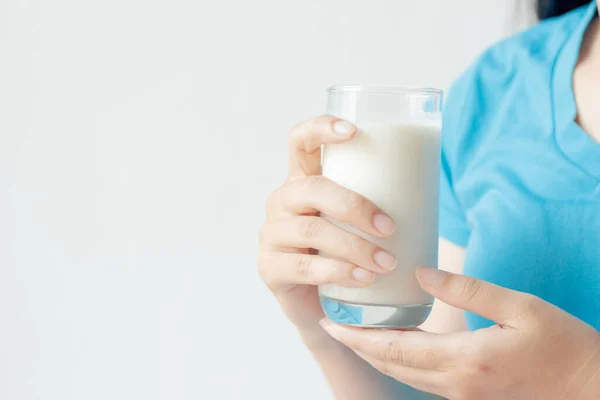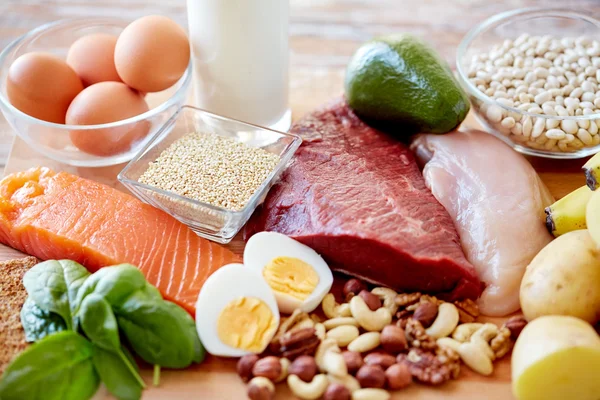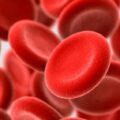Avoid These 5 Drinks: They Can Make Your Bones Become Weak Fast – Several factors influence bone health, including genetics, age, hormonal changes, and nutrition. While some factors are beyond our control, making conscious choices about our diet and lifestyle can significantly impact bone strength and overall health.
It’s important to know that the beverages we consume can either contribute to or detract from bone health. Some drinks contain essential nutrients that support bone strength, while others may deplete vital minerals, leading to weakened bones. Here are drinks to avoid if you want to promote your bone health.

1. Soda and Carbonated Beverages
Soda and carbonated beverages have gained immense popularity worldwide. However, they pose significant risks to bone health due to their high phosphoric acid content. Phosphoric acid can interfere with calcium absorption, leading to reduced bone density over time. Studies have shown that individuals who consume excessive amounts of soda have a higher risk of developing osteoporosis.
Additionally, the high sugar content in these beverages can contribute to inflammation, further impacting bone health. To maintain strong bones, it’s best to limit or avoid the consumption of soda and carbonated drinks.
2. Excessive Caffeine Consumption
Many of us rely on coffee and other caffeinated beverages to kickstart our day and stay energized. While moderate caffeine consumption may not significantly affect bone health, excessive intake can be detrimental. Caffeine can lead to calcium depletion in the body, as it increases calcium excretion through urine.
Moreover, caffeine can interfere with the proper absorption of calcium, reducing bone density over time. To support your bone health, consider moderating your caffeine intake and opting for calcium-fortified alternatives.
3. Alcohol
While enjoying a drink now and then is generally harmless, excessive alcohol consumption can harm bone health. Alcohol inhibits the function of osteoblasts, which are responsible for bone formation. This can lead to reduced bone mass and a higher risk of fractures.
Moreover, chronic alcohol consumption can disrupt hormonal balance, further impacting bone density. To protect your bones, it’s essential to consume alcohol in moderation and avoid excessive drinking.
4. Energy Drinks
Energy drinks are popular among individuals seeking a quick boost of energy. However, these drinks often contain high levels of caffeine and sugar, which can negatively affect bone health. Excessive caffeine intake leads to calcium loss, weakening bones over time.
Additionally, the high sugar content in energy drinks can contribute to inflammation, further compromising bone health. To avoid weakening your bones, limit the consumption of energy drinks and opt for healthier, natural alternatives to boost your energy levels.
5. Sugary Fruit Juices
Fruit juices are often perceived as healthy beverages, but many commercially available options contain high levels of added sugars. Excessive sugar consumption can trigger inflammation, leading to impaired bone regeneration and decreased bone density.
Instead of sugary fruit juices, choose fresh, whole fruits that provide essential nutrients without a negative impact on bone health.
Alternative Bone-Healthy Drink Options

Milk
Milk is a classic bone-friendly drink, and for a good reason. It’s an excellent source of calcium, which is a vital mineral for bone strength and density. Additionally, milk provides protein, vitamin D, and other nutrients that support overall bone health. For those who are lactose intolerant or prefer plant-based options, fortified plant-based milk such as almond milk, soy milk, or oat milk are great alternatives.
Green Tea
Green tea is a wonderfully refreshing beverage that offers numerous health benefits, including promoting bone health. It contains compounds called catechins, which have been shown to enhance bone mineral density and reduce the risk of fractures. Green tea also has anti-inflammatory properties, which can further support bone health by reducing inflammation.
Fortified Orange Juice
Certain types of orange juice are fortified with calcium and vitamin D, making them a convenient and tasty way to boost your bone health. These nutrients work together to enhance calcium absorption and bone strength. When choosing fortified orange juice, make sure it’s free from added sugars to maximize its bone-boosting benefits.
Bone Broth
Bone broth is a nutrient-rich liquid made by simmering animal bones and connective tissues. It’s a rich source of collagen, amino acids, and minerals like calcium, magnesium, and phosphorus, all of which support bone health. Bone broth can be consumed on its own or used as a base for soups and stews, making it a versatile and nourishing addition to your diet.
Smoothies with Leafy Greens
Smoothies offer a fantastic opportunity to pack in a variety of nutrients, including those beneficial for bone health. By blending leafy greens like kale or spinach into your smoothies, you can increase your intake of calcium, magnesium, and other vitamins crucial for maintaining strong bones. Adding fruits and a source of protein, like yogurt or protein powder, further enhances the nutritional value of your smoothie.
Coconut Water
Coconut water is a natural, electrolyte-rich drink that provides hydration while offering a good amount of potassium and magnesium. These minerals play a role in maintaining acid-base balance and supporting bone health. Coconut water is an excellent alternative to sugary sports drinks and can be enjoyed on its own or as a base for smoothies and mocktails.
Herbal Teas
Various herbal teas, such as chamomile, peppermint, and hibiscus, not only taste delightful but also offer unique health benefits. Some herbal teas have anti-inflammatory properties that can support bone health by reducing inflammation. Moreover, they provide hydration without added sugars or caffeine, making them a great option for those looking to take care of their bones.
Maintaining a Healthy Lifestyle for Strong Bones: What to do

- A Balanced Diet: Consume a well-balanced diet rich in calcium, vitamin D, and other nutrients that support bone health. Foods high in calcium include dairy products (milk, yogurt, cheese), leafy greens (kale, broccoli), and fortified plant-based milk. Vitamin D can be obtained from sunlight exposure and certain foods like fatty fish, fortified dairy alternatives, and egg yolks.
- Exercise Regularly: Engage in weight-bearing and muscle-strengthening exercises. Weight-bearing exercises, such as walking, jogging, dancing, and hiking, help to stimulate bone formation and maintain bone density. Muscle-strengthening exercises, like weightlifting and resistance training, support overall bone health.
- Quit Smoking: Smoking can negatively impact bone health by decreasing bone density and interfering with calcium absorption. If you smoke, quitting is one of the best things you can do for your bones (and overall health).
- Limit Alcohol and Caffeine: Excessive alcohol and caffeine consumption can hinder the body’s ability to absorb calcium and may contribute to bone loss. Moderation is key; limit alcohol to one drink per day for women and up to two drinks per day for men.
- Maintain a Healthy Weight: Being underweight can lead to lower bone density, increasing the risk of fractures. On the other hand, being overweight may put extra stress on the bones and joints. Aim to maintain a healthy weight through a balanced diet and regular exercise.
- Avoid Crash Diets: Rapid weight loss diets or crash diets can lead to bone loss, as they often lack essential nutrients required for bone health. Instead, focus on gradual and sustainable weight loss, if needed.
- Stay Hydrated: Water is essential for overall health, including bone health. It helps transport nutrients to the bones and aids in the removal of waste products.
- Get Enough Sleep: Quality sleep is crucial for bone health, as bone tissue repairs and regenerates during sleep. Aim for 7-9 hours of sleep per night.
- Reduce Stress: Chronic stress can lead to increased cortisol levels, which may negatively affect bone density over time. Engage in stress-reducing activities like meditation, yoga, or spending time in nature.
- Consult Your Doctor: If you have specific concerns about your bone health or risk factors for bone-related conditions (such as osteoporosis), talk to your doctor. They can provide personalized advice and may recommend bone density testing or other preventive measures.
FAQs
- Can I drink soda occasionally without harming my bones? While an occasional soda may not have an immediate impact, regular consumption can lead to long-term bone health issues. It’s best to limit soda intake and opt for healthier beverage options.
- Is there a specific amount of caffeine that is safe for bone health? The impact of caffeine on bone health varies from person to person. However, it’s generally recommended to moderate caffeine consumption and ensure an adequate intake of calcium.
- Can alcohol in moderation benefit bone health? Some studies suggest that moderate alcohol consumption may have a minimal positive impact on bone health. However, excessive alcohol intake can lead to bone loss.
- Are there any natural energy-boosting alternatives to energy drinks? Yes, there are many natural alternatives to energy drinks, such as herbal teas, infused water, and fruit smoothies, that can provide sustained energy without compromising bone health.
- How can I incorporate more bone-friendly drinks into my diet? Opt for drinks that are rich in calcium and other essential nutrients, such as milk, fortified plant-based milk, green tea, and natural fruit juices (with no added sugars).







Leave a Reply